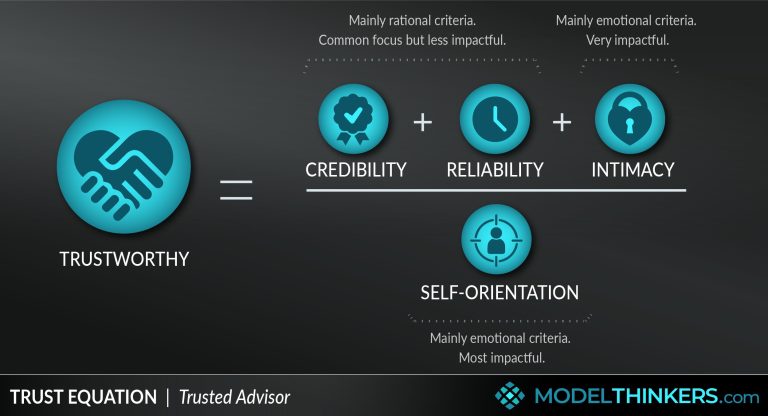Why Most Startups Fail and How to Avoid It
Starting a business is a thrilling endeavor, filled with the promise of innovation, growth, and success. However, despite the high level of optimism, the reality is that many startups don’t survive past their first few years. In fact, statistics show that about 90% of startups fail, a sobering number that underscores the challenges faced by new entrepreneurs. Understanding the common reasons why startups fail—and how to avoid them—can significantly increase your chances of building a successful business.
1. Lack of Market Demand
One of the most common reasons startups fail is that they offer a product or service that people simply don’t want or need. Even the most innovative ideas can falter if they don’t solve a real problem for consumers or don’t meet a demand in the market.
How to Avoid It:
Before launching your startup, conduct thorough market research. This involves identifying potential customers, understanding their pain points, and evaluating whether your product or service provides a compelling solution. Don’t rely solely on your own beliefs or assumptions about the market—use surveys, interviews, and data analytics to back up your findings. Additionally, consider starting with a minimum viable product (MVP) to test the waters and gather feedback from your target audience before making significant investments.
2. Running Out of Cash
Insufficient funding is a common reason startups fail. New businesses often underestimate the amount of capital required to cover operating expenses during the early stages, leading to cash flow problems. While some entrepreneurs believe they can “bootstrap” their way to success, unexpected expenses or longer-than-expected timelines can quickly deplete available funds.
How to Avoid It:
Proper financial planning is essential for startup success. Create a detailed budget that includes all potential costs—fixed and variable—and build in a buffer for unexpected expenses. It’s also crucial to have a solid cash flow management strategy to ensure you’re able to meet operational costs. If necessary, seek funding from investors, venture capital, or small business loans to ensure you have enough capital to cover initial operations until the business becomes self-sustaining.
3. Inadequate Team and Leadership
A great idea may fail if it’s not backed by the right team. Many startups are run by a small group of individuals, and if those individuals lack the necessary skills, experience, or chemistry, it can quickly lead to failure. A lack of leadership or a team that is not aligned with the company’s goals can cause operational inefficiencies, poor decision-making, and a lack of accountability.
How to Avoid It:
Surround yourself with a team of skilled and motivated individuals who complement your strengths and weaknesses. Look for people who are passionate about the business, can bring diverse perspectives, and have the right expertise to drive the company forward. As a founder, be a strong leader who can communicate a clear vision, motivate the team, and make tough decisions when necessary. Regularly assess team dynamics and ensure that everyone is aligned with the startup’s long-term goals.
4. Failure to Pivot
In the startup world, flexibility is key. The business environment is constantly evolving, and what works today may not work tomorrow. Many startups fail because they don’t adapt quickly enough to changing circumstances, market demands, or customer feedback. Sticking to a rigid business model in the face of failure can lead to disaster.
How to Avoid It:
Be prepared to pivot when necessary. A pivot is a significant change in direction for your business, and it’s not always a bad thing. In fact, some of the most successful startups—including Instagram and Twitter—were born out of pivots. Pay attention to customer feedback and market trends, and be willing to adjust your product, service, or business model if things aren’t working. Failure is not always the end; sometimes it’s a stepping stone to a more successful approach.
5. Poor Marketing and Customer Acquisition
Even if you have a great product, without effective marketing, your startup may struggle to gain visibility and attract customers. Many startups fail because they don’t know how to market their products effectively or because they rely too heavily on a single marketing channel. Inadequate customer acquisition strategies can lead to poor sales and missed growth opportunities.
How to Avoid It:
Develop a comprehensive marketing strategy that includes a mix of channels—social media, email marketing, SEO, paid advertising, content marketing, and more. Ensure that you clearly define your target audience and tailor your messaging to their needs and preferences. Start small, test different strategies, and scale what works. Focus on building a strong brand identity and establishing trust with your customers through consistent, value-driven communication.
6. Ignoring Customer Feedback
Customer feedback is a valuable tool for growth and improvement. Ignoring or dismissing feedback can cause a startup to miss out on opportunities to refine its product, improve customer satisfaction, and build loyalty. In fact, many startups fail because they don’t listen to their customers or fail to act on the feedback they receive.
How to Avoid It:
Create channels for customers to share their feedback and make it easy for them to voice their opinions. Regularly monitor reviews, surveys, and social media to gauge customer sentiment. Be open to criticism and use it to refine your offerings. If your customers are unhappy with certain aspects of your product or service, take swift action to address their concerns. Customer-centric businesses are more likely to build long-term loyalty and succeed in a competitive market.
7. Overexpansion
While growth is the ultimate goal for any startup, expanding too quickly without proper preparation can lead to failure. Many startups fail because they try to scale too soon or expand into new markets without fully understanding the risks involved. Overexpansion often leads to strained resources, operational inefficiencies, and financial difficulties.
How to Avoid It:
Focus on building a strong foundation before pursuing rapid expansion. Ensure that your core product or service is well-established, and that you have a stable customer base and operational processes in place. When you’re ready to expand, do so gradually, and be mindful of how additional growth will affect your business operations. It’s better to grow slowly and sustainably than to stretch your resources too thin.
8. Lack of Focus
Startups often struggle when they try to do too many things at once. Trying to serve every customer or pursuing multiple business opportunities simultaneously can dilute your focus and resources. Without a clear focus, it’s easy to lose track of the core mission, which can lead to failure.
How to Avoid It:
Stay focused on your primary goal—whether it’s solving a particular problem or providing a specific product or service. Don’t get distracted by every new opportunity that comes your way. It’s important to be adaptable, but it’s equally important to have a clear vision and a specific target market. Prioritize your efforts and resources toward the areas that will have the greatest impact on your business.
Conclusion
While the journey of entrepreneurship is fraught with challenges, understanding the common reasons startups fail—and how to avoid them—can help you navigate the obstacles along the way. By conducting thorough market research, ensuring adequate funding, building a strong team, listening to customer feedback, and maintaining focus, you can greatly improve your chances of startup success. Remember that failure is not the end, but a part of the process. Learn from mistakes, adapt quickly, and always stay committed to your vision.







